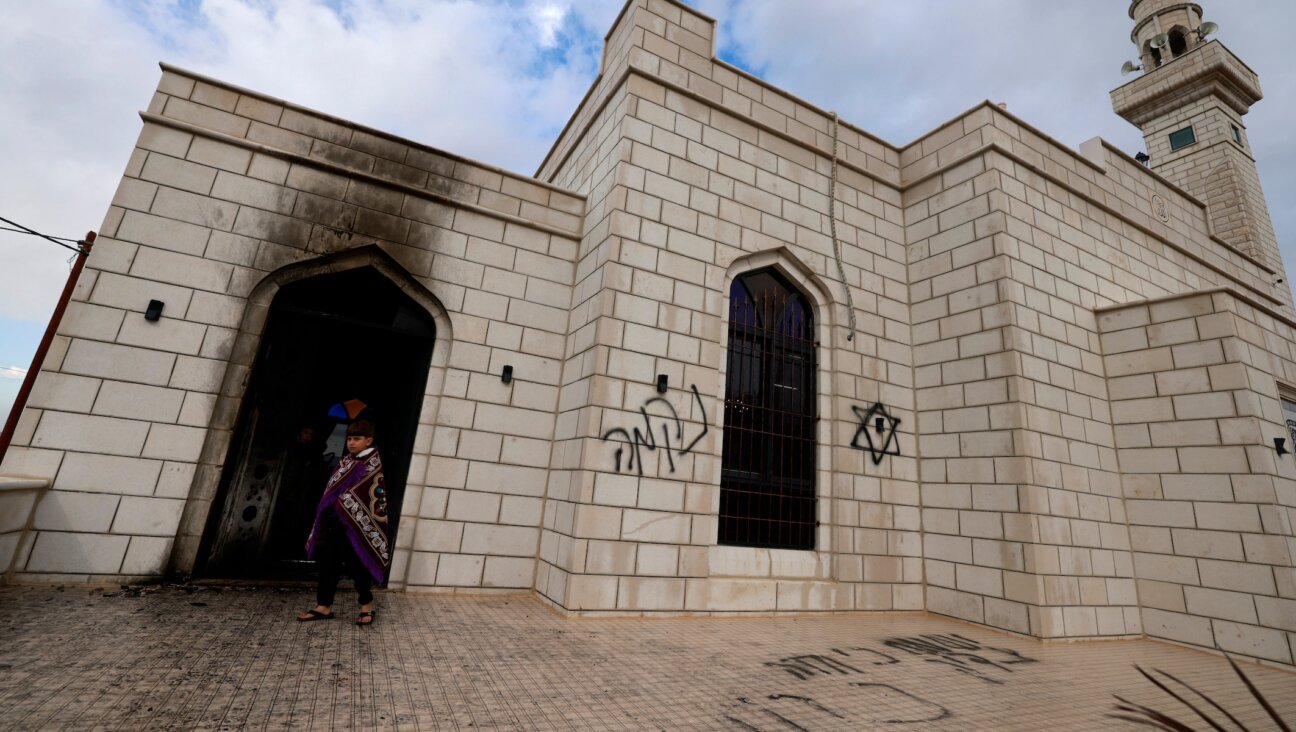Demolishing Homes While Mourning Lost Temple?
This Thursday, while Israelis across town marked Tisha B’Av by mourning the destruction of our Temple, as many as 45 Palestinian families in the East Jerusalem neighborhoods of Jabel Mukaber, Sur Bacher, Shuafat and Beit Hanina were facing the impending demolition of their homes.
None of these families, who in recent weeks had been informed of the planned house demolitions officially or orally by the municipality of Jerusalem, have engaged in violence or in harboring terrorists.
When the Israeli government demolishes the homes of suicide bombers’ families, the official rationale for the order is security. In these cases, however, there is no security reason for the order.
The families’ only crime is violating zoning regulations. They have illegally built a room or some addition to their modest homes in order to provide adequate housing for their families.
Of course, any state must have and enforce zoning regulations, but in this case the zoning violations are a direct result of a discriminatory public policy. It is virtually impossible for a Palestinian family in Jerusalem to get permission to add on to its homes. Applications by Palestinian families to build or add on to their property are routinely rejected.
With the goal of limiting the number of Palestinians in Jerusalem, the Israeli government has designated 54% of Palestinian-owned land in East Jerusalem as “open green space” and therefore not available for Palestinian construction. In addition, 35% of Palestinian land in East Jerusalem was expropriated for the building of Jewish neighborhoods. This leaves Palestinians in Jerusalem the use of only a fraction of the land that they own and almost none for additional housing. There is currently a shortage of some 25,000 housing units for Palestinians in Jerusalem.
Palestinian families are caught in a “Catch 22.” As their families expand, they have no legal way to provide even modest housing. The predicament they find themselves in is a direct result of Israeli land policy.
The policies limiting Palestinian housing are in striking contrast to the housing policies affecting Jews. Between 1967 and 2003 some 90,000 housing units have been built in East Jerusalem for Jews, almost all with government financing. None were built for Palestinians.
Furthermore, 80% of the housing violations occur in the Jewish part of the city, where many Jewish residents make alterations without permits. Except for the demolition of an occasional porch or minor addition, Jewish homes are never demolished. More than 300 Palestinian homes have been demolished since 1988.
This glaring disparity in policy and its application to Jewish and Palestinian residents of Jerusalem violates Israel’s Declaration of Independence. In the declaration, the fathers envisioned a state “that is based on freedom, justice and peace as envisaged by the prophets of Israel; that will ensure complete equality of social and political rights to all its inhabitants irrespective of religion, race or sex.” Even more egregious, the policy violates the Torah’s insistence that all people are created in the image of God and that there must be one law for all who dwell in the land.
How would we respond here in America if a city or suburb’s zoning regulations and punishment for violations were made on the basis of race, religion or ethnicity?
How tragic it would be for us as Jews to be destroying the homes of other people in the very month of Av, the month in the Hebrew calendar when we painfully remember and mourn the destruction of our own Temple.
The future and security of the Jewish people in Jerusalem and in Israel are dependent on Israel’s ability to create good relationships with the other people who live on the same land. What will happen in the hearts and minds of the children, women and men who witness the destruction of their homes by the bulldozers of the Jewish state? This action will undoubtedly infuriate them and unnecessarily create more bitterness and hatred.
This cruel and immoral policy reduces the possibility of peace and puts us all on a road map to more hatred and violence. It threatens the security of the State of Israel. On Shabbat Hazon, just before Tisha B’av, the haftorah from Isaiah reminds us, “Zion shall be redeemed by justice.”
Putting deeds to words, several rabbis from Rabbis for Human Rights in Israel and other human rights activists in Israel have committed to physically staying in Palestinian homes scheduled for demolition during the month of Av in an effort to prevent their razing.
For the sake of the security of the State of Israel and for the sake of the moral soul of the Jewish people, I pray that they are successful in their efforts. And I pray that Jews here and in Israel do all we can to convince the Israeli government and the municipal authorities in Jerusalem to cancel these demolition orders and end the policy of home demolition.
Rabbi Brian Walt is the executive director of Rabbis for Human Rights North America.
A message from our Publisher & CEO Rachel Fishman Feddersen

I hope you appreciated this article. Before you go, I’d like to ask you to please support the Forward’s award-winning, nonprofit journalism during this critical time.
We’ve set a goal to raise $260,000 by December 31. That’s an ambitious goal, but one that will give us the resources we need to invest in the high quality news, opinion, analysis and cultural coverage that isn’t available anywhere else.
If you feel inspired to make an impact, now is the time to give something back. Join us as a member at your most generous level.
— Rachel Fishman Feddersen, Publisher and CEO





















